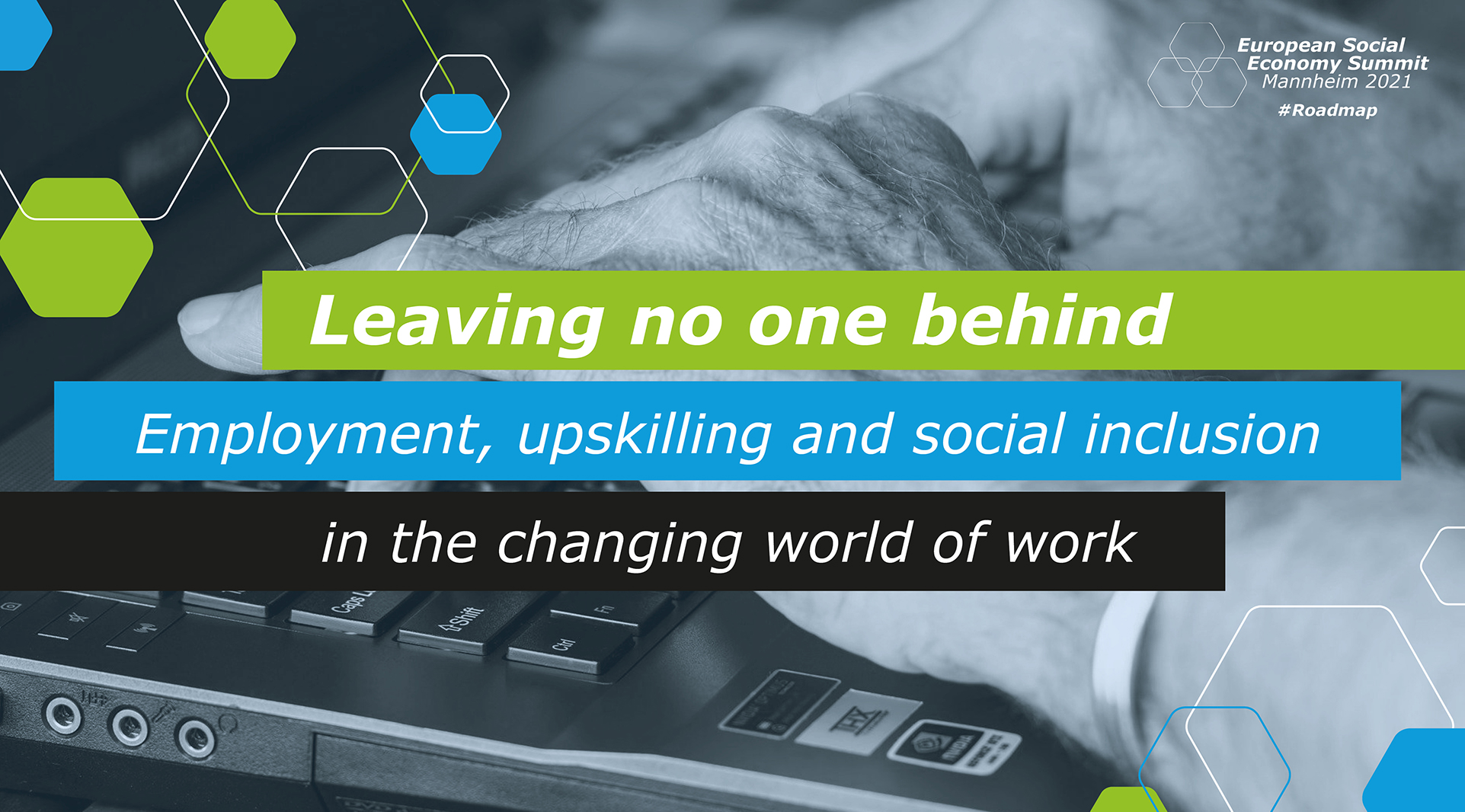Online digital platforms should be imagined from a democratized and decentralized angle in order to scale up building a participatory and competitive social economy sector. That is what has been discussed in the first workshop organized by the European organization in the European Social Economy Summit.
On the 29th of October of 2020, Diesis Network organized a panel for the event “Leaving no one behind. Employment, upskilling and social inclusion in the changing world of work“ of the European Social Economy Summit. The panel “Social Economy Enterprises in the Digital Transition: Digital platforms” brought together several experts, such as:
- Hans-Gerd Nottenbohm (Management Board at innova eG)
- Trebor Scholz (Founding Director at Institute for the Cooperative Digital Economy Platform Cooperativism Consortium)
- Giuseppe Guerini (President of Cecop-Cicopa Europe)
- Gianluca Pastorelli (Executive President of Diesis Network)
- Sven Bartilsson (Senior Advisor at Coompanion)
- Timo Berg (Member of the Board and Director of 4freelance recruitment eG)
- Damiano Avellino (Co-Founder of FairBNB)
- Marta Bruschi (Senior Expert Network and Community Engagement at Diesis Network)
- Anastasia Costantini (Senior Expert SDGs and Green Transition at Diesis Network)
The panelists contextualized the rapid changes and applications of digitalization during these last times since it affects the quality of work and the health of workers. As stated by Hans-Gerd Nottenbohm, it is critical in future work development “to find better solutions for people”. As Trebor Scholz mentioned, the atmosphere of emergency created nowadays is used to justify austerity’s politics rather than turn the precarity into collaborative platforms’ paths to sustain workers in a participatory democracy. In that regard, Giuseppe Guerini pointed out that social enterprises must respond to tech mission, being inclusive enterprises working for a people-centered digital transformation.
Diesis Network SDGs and Green Transition expert Anastasia Costantini questioned:
“The potential of Digital Social Economy will depend mainly on one single point: how many people decide to actively engage in developing and participating in the digital social economy.”
The session proceeded with the participation of Damiano Avellino, Sven Bartilsson, and Timo Berg. First, Damiano Avellino introduced Fairbnb, a cooperative accommodation booking platform that promotes and finances local initiatives and projects. “I believe in the bottom-up movement approach, to create an enabling ecosystem where there’s action from institutions, academy, and citizenry”, the entrepreneur said. Second, Sven Bartilsson illustrated Companion and considered essential social enterprises’ support as cooperative developers for enabling ecosystem building alliances and influencing policies. And last but not least, Timo Berg introduced 4freelance, the largest cooperative of solo entrepreneurs in Germany, which aims to open the market for fair and transparent services, as well as foster a community for knowledge exchange among members.
The overview analysis and the three different cases revealed the evidence that social enterprises in Europe are working on different levels, with many diverse performers and, in various forms, to re-shape the economy and the centralized model. However, Digital Social Economy potential depends on how many stakeholders decide to engage and participate actively to have a space in the institutions and become completely competitive.
Diesis Network will be organizing a second workshop end of November 2020. Stay tuned for the upcoming information!
